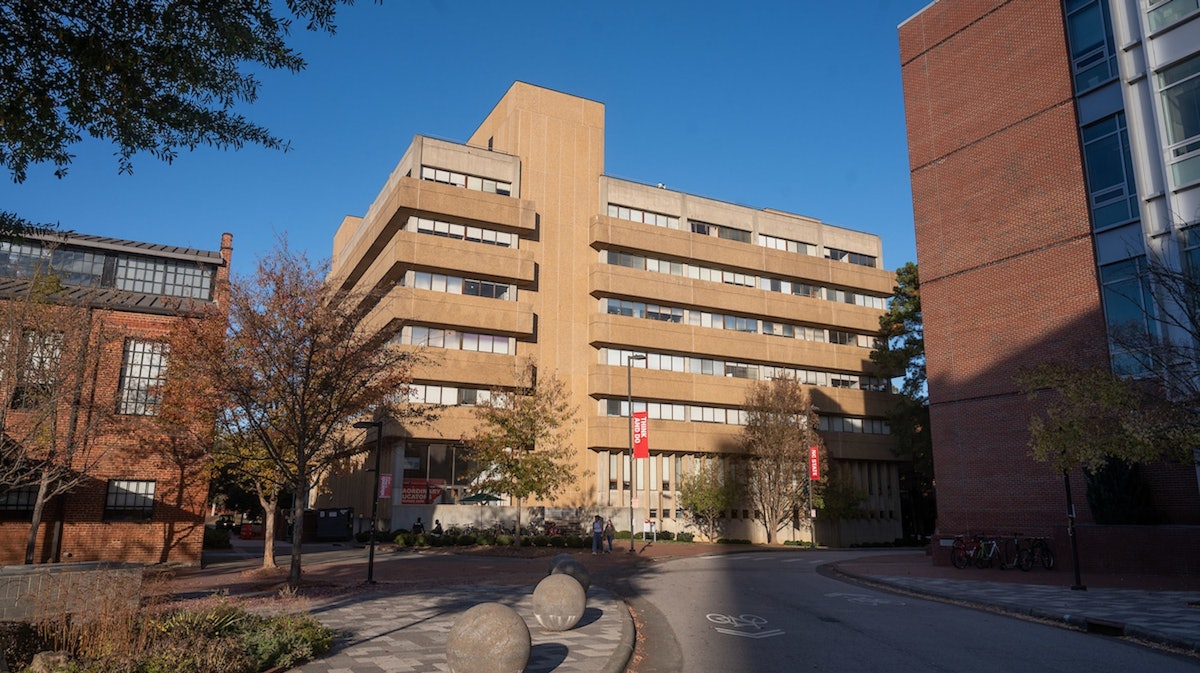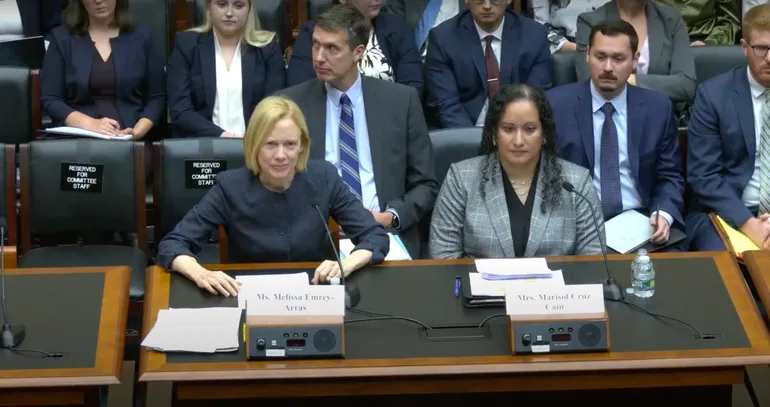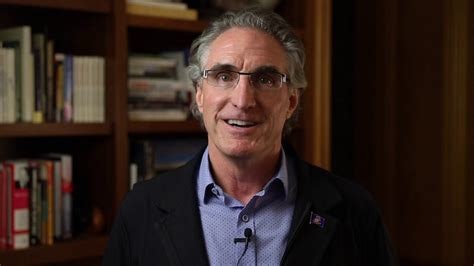By mid-July, the attorney F. Bryan Brice, Jr., and his client Dr. Darren Masier, an assistant professor of human resource management at Meredith College, had petitioned for an independent examination of the potential cancer cluster at Poe Hall at North Carolina State University (NC State).
Getting access to perform testing has been Brice and Masier’s goal since they first filed a motion for discovery in February, in hopes that they could better identify what toxins at Poe Hall might have contributed to Masier’s acute myeloid leukemia. While a judge initially ruled in their favor, NC State appealed and put a stop to all potential outside testing within Poe Hall.
 Dr. Darren Masier
Dr. Darren Masier
“We see things marked on Geosyntec’s testing that we believe needs to be done in order to get a more comprehensive picture of what the exposure issues may be for the people who spent time in Poe Hall, our clients and others,” says Brice.
Brice says he has fielded calls from over 250 people, including former students, staff, faculty, and administrators who spent time in Poe Hall and have since become sick with cancers or other illnesses. NC State discovered toxic PCBs in Poe Hall in October 2023, and the psychology and education building has been shut down since November 2023.
PCBs, or polychlorinated biphenyls, are manmade, highly carcinogenic chemical compounds, previously used in numerous building materials before being banned in the U.S. through the Toxic Substances Control Act of 1979. PCBs are also known to cause cancer and other serious health effects on the immune, reproductive, nervous, and endocrine system, among other impacts, according to the Environmental Protection Agency (EPA).
By the time NC State closed Poe Hall, Masier was waist-deep in chemotherapy to treat his leukemia. At the time, he had no notion of the possibility of a link between his time at NC State and his surprising cancer development. Masier spent hours within Poe Hall as a graduate student and assistant between 2009 and 2013.
Getting diagnosed
Masier received his official diagnosis one year ago on July 18, at age 56, after a series of strange gout flareups, gum infections, and stye-like infections in his eyes. Masier says he simply thought he was getting old.
“I go to the doctor, and he said, ‘Go see a blood doctor. I’m concerned,’” says Masier. “It happened so fast. They said, ‘We admit you to the hospital tomorrow.’ I was in the hospital for 133 days beginning in July.” His diagnosis came as a shock to his family. Masier had always prioritized his health. He and his wife Terri had run in hundreds of marathons. Terri Masier, a nurse anesthetist at University of North Carolina’s School of Medicine, attests that Masier “never had a cough, cold, or sore throat — he didn’t even have COVID.”
Terri says that, as a nurse, she felt she would be prepared for the things she would see as her husband’s stay in the hospital became months long. But she says there was simply no way she could prepare for it mentally.
“It was overwhelming at times. I wasn’t sure he was going to make it,” says Terri. “A couple of days before Christmas, I told Darren’s family to ‘come into town,’” to offer their goodbyes.
Masier eventually had one lung removed to stop the spread of a fungal infection, and he received a bone marrow transplant Nov. 21. Thankfully, despite a difficult December, the transplant worked, and he officially went into remission.
Making the connection
Masier says he discovered the possible link between his leukemia and PCBs through conversations with six friends, all of whom were graduate assistants together at Poe Hall. Out of those six friends, three have developed an illness.
“One has leukemia, one has an autoimmune disorder, and one has breast cancer,” says Masier. “The numbers are alarming. People who’ve had cancer-like-things related to Poe Hall, it’s statistically out of whack compared to all other buildings [on NC State’s campus.]”
One of the main reasons Masier, through Brice’s law firm, filed a motion for discovery against NC State was so that he could have more information to communicate with his doctor.
“The first thing my doctor asked me, ‘Have you been around any toxins?’ And I said, ‘Not that I know of,’” says Masier. “Now, if indeed the independent testers can nail down what these PCBs are, I can tell my doctor, and perhaps that can help me and other people with treatments, to know what exactly got in my system to cause my body to get leukemia.”
That is precisely what Brice says he hopes will happen, if they are indeed allowed to move forward with independent testing. What’s been frustrating and a touch surprising, he says, is why NC State has been so resistant.
“It’s just been a pattern of delay,” says Brice. “What harm is there in more testing? The more data the better.”
Brice says NC State, as a state entity, is claiming sovereign immunity to protect themselves from lawsuits.
“But, they are still subject to basic discovery, like turning over documents for a public records request,” says Brice. “How can a public university say, ‘You’re being denied access into a public building to extend tests to determine the issues that have negatively affected hundreds of our state employees?’ It just doesn’t make sense. While we understand that governmental entities believe that sovereign immunity applies to them, we believe they were taking that too far.”
Brice says he is also frustrated that NC State appears to have made no effort to contact former students, faculty, and staff who may have spent time in Poe Hall. Brice says they have only reached out to current employees, and the rest were left to discover Poe Hall’s current state through online resources. This is why, Brice says, so many individuals have called in to law offices or the local news agency WRAL to find more information.
For its part, NC State says it has been open and informative. Their primary source of communication regarding all things Poe Hall is their dedicated webpage, whose FAQ section says they will continue to update the page and the “broader NC State community regularly” through the website, social media, and email.
When asked for comment, NC State spokespersons directed Diverse to the website and to their statement issued to Law360.com at the end of June 2024.
“In recent weeks, news media have reported about legal proceedings related to Poe Hall and individuals who want to conduct independent testing. To clarify, this refers to testing on behalf of specific individuals who are either litigants in actions against the university or have indicated an intent to pursue litigation against the university,” the statement reads. “Notwithstanding the litigation, the university continues to engage and consult with independent third parties, including the EPA and the National Institute for Occupational Safety and Health (NIOSH), and recently shared Geosyntec’s report publicly.”
NC State is planning for remediation, the statement continues, while working to comply with discovery in litigation, and they are actively working with the law firms to create some form of agreement for entry. Which is where Brice and Masier find themselves, waiting with bated breath to see if their testing will finally be allowed.
Masier and his wife, Terri, say they still have great love for NC State, despite everything that’s happened in the past year. It’s something the Masiers have in common with other sick clients, says Brice. He just hopes that the institution, by allowing this testing, will show some love back.
“If folks have been to Poe Hall, and they’re having adverse health conditions, they should talk to somebody about it,” says Brice. “Knowing exactly what was going on in that building can absolutely have an effect on early detection, to have that knowledge, so your medical providers can detect something that you might not have looked at otherwise. It could save your life.”
#Snapshot #Time #Cancer #Cluster #State










